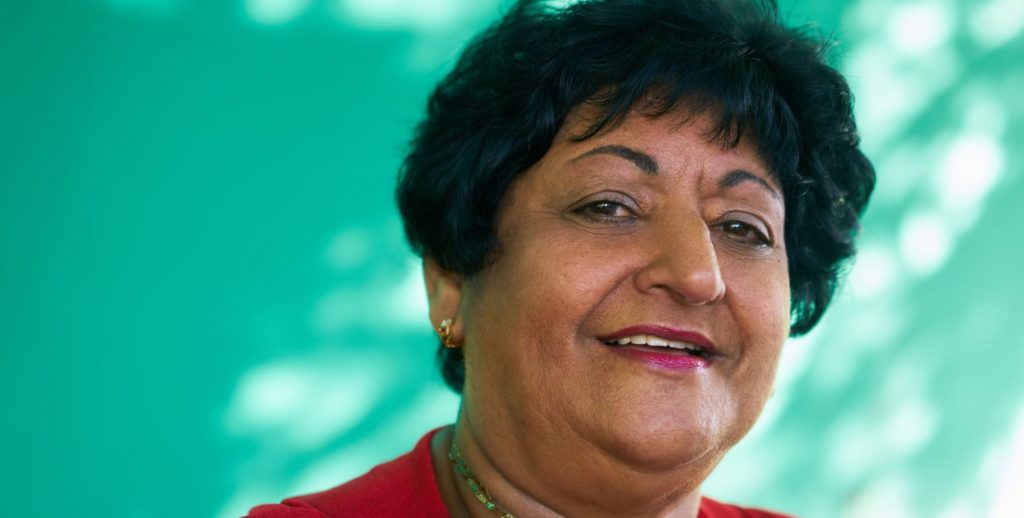By Jean Van Ryzin. This post originally appeared on the NCOA blog.

How we talk about aging matters. It shapes both individual and public perceptions. That’s why several national organizations are working together to reframe the story of what it’s like to grow old in America.
Last week, the National Hispanic Council on Aging held a roundtable to address the misconceptions surrounding Hispanic older adults. We asked Dr. Yanira Cruz, NHCOA President & CEO, and Anna Maria Chávez, NCOA Executive Vice President and Chief Growth Officer, to share their perspectives on the issue, both as Latinas and as leaders working on behalf of older adults.
What are the biggest misconceptions about Hispanic older adults today?
Dr. Cruz: The biggest misconception is thinking of the aging Hispanic population as deteriorating, incompetent, and dependent. According to the Status of Hispanic Older Adults, a report developed by NHCOA in 2017, most older adults in the Unites States live independently and are healthy and socially productive.
Chávez: There are many factors that affect a person’s ability to age well, so it’s critical to see each person as an individual, not as a stereotype. Just like the rest of the population, Hispanic older adults are living longer—which is both a gift and a challenge. We should not label them as a monolithic population. As Dr. Cruz has shared with me, not all Latino seniors see themselves as abuelitos, or grandparents, for example. We need to allow older adults to self-define themselves and their own experiences.
What are the often cultural and more prevalent challenges Hispanic older adults face in accessing services and information to maintain their health and economic security?
Dr. Cruz: When Hispanics do have access to health care, linguistic and cultural gaps between the health care provider and patient or a lack of cultural competency can result in misunderstandings and poor communication. Older adults are struggling just to stay economically afloat and to maintain their health. Our commitment is to address the diverse needs of Hispanic populations and ensure they have access to culturally and linguistically appropriate services.
Chávez: Personal connections can go a long way toward breaking down barriers. Several of NCOA’s community-based partners are testing and implementing best practices to engage Hispanic older adults in health programs like falls prevention and chronic disease self-management, as well as benefits programs that can help them pay for daily expenses. Often, it starts with defining how the programs are relevant to the Hispanic community. We also need to empower our community partners to serve as intermediaries to meet the needs of all seniors. Although we have a national perspective, I have learned that the best solutions are found at the local level because they are closer to the older adult.
How can we work together to provide a fuller story of how Hispanic older adults are aging in the country today?
Dr. Cruz: We must integrate the idea of aging with a superior level of knowledge and experience. We need to continue advocating for policies—public and private sector—but we must also stop thinking of seniors as “problems to solve” versus individuals with rich experiences and perspectives. For us at NHCOA, we moved our national office to our local senior housing facility where we meet and speak with our Latino seniors on a daily basis. It has given me daily inspiration as a leader but has also served as a reality test around how our services need to be crafted and delivered to older adults.
Chávez: NCOA is committed to every person’s right to define their path forward and age well, which is why we value partnerships with organizations like NHCOA. We must understand the realities facing older Hispanics and share their real stories, so we can deliver real solutions. We also must collaborate with other organizations to create the best educational platforms, technology solutions, and innovations to support and inspire seniors to live a healthy and fulfilling life.
What solutions can we advance to improve the lives of Hispanic older adults?
Dr. Cruz: The biggest challenge we face is the lack of funding to ensure their inclusion. More than 30% of older adults remain in the labor market. It is estimated that this year, more than 10% of Americans over 75 will be working or looking for a job. This figure translates into approximately 2 million people for whom the passage and implementation of initiatives like paid leave at the national level should be a priority. That is why NHCOA supports The Family and Medical Insurance Leave Act.
Chávez: We can empower Hispanic older adults with the knowledge and tools to improve their own health and economic security—and we can continue to protect and strengthen federal programs that they and their families rely on, such as Medicare and Medicaid. Since many older adults want to continue working, we must redesign workforce solutions so their experiences and tenure are seen as important assets for organizations, and employers know how to retain and hire experienced workers.
The opinions expressed in this article are those of the author and do not necessarily reflect those of the Diverse Elders Coalition.

